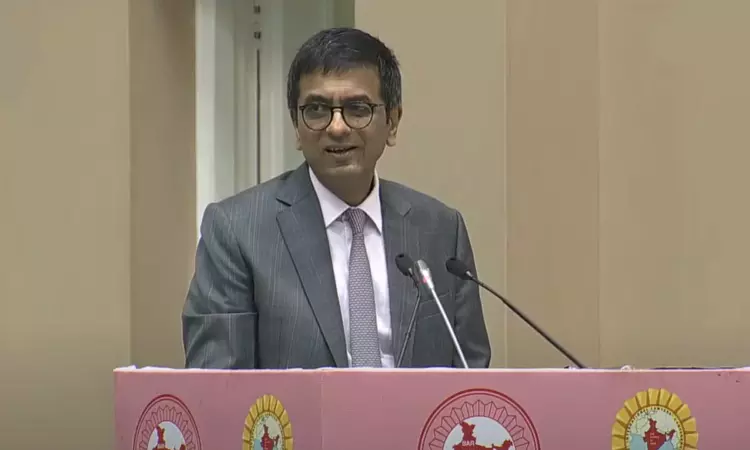Spirit Of Collaboration Between Institutions Necessary To Deliver Justice: CJI DY Chandrachud
Padmakshi Sharma
23 Sept 2023 2:37 PM IST

Next Story
23 Sept 2023 2:37 PM IST
"While the Constitution provides for separation of powers between the legislature, the executive and the judiciary, it also creates a space for institutions to learn from each other to deliver justice", said Chief Justice of India DY Chandrachud highlighting the importance of the "spirit of collaboration" between institutions.Delivering an address at the inauguration of the Bar Council of...
